International Students
EU Students or Equivalent
Citizens of the EU, of the EFTA (European Free Trade Association) countries (Liechtenstein, Iceland, Norway and Switzerland) and of the Republic of San Marino, non-EC citizens legally resident in Italy, and political refugees. These citizens are admitted to the MSSE program with the same procedures applicable to Italian nationals. No immigration visa is required.
Non-EU Students
Prior to obtaining admission to Italian Universities, non EU students residing abroad may be required to perform a pre-enrollment procedure. Applicants are advised to check their specific situation with the Italian Embassy or Consulates of their country of origin. The list of the Italian Embassies and Consulates worldwide is available on the web site of the Italian Ministry of Foreign Affairs.
Upon submission of their application, potential students will be granted information, language help and assistance in the preparation of the required documents from the MSSE secretariat. Upon admission to the MSSE graduate program, students will receive full assistance in the completion of all necessary paperwork.
As the MSSE program is offered in English, international applicants are exonerated from taking the test of Italian language normally required for admission to Italian Universities.
Visa
EU Students
No immigration visa is required.
Non-EU Students
A valid student immigration visa is required. For obtaining such visa from the competent Italian Embassy or Consulate the foreign student must demonstrate the availability of adequate money to cover living and accommodation expenses in Italy for an amount of at least € 350.57 per month for each month of duration of the academic year. The student must also indicate the availability of the money needed for repatriation, which may also be proven by exhibiting his/her return ticket to the country of origin.
Health Insurance
The National Health Care System freely provides health care to Italian and EC citizens. It also freely provides emergency cares to everybody.
EC citizens can make use of their European Health Insurance Card for automatically securing proper coverage of their medical care and hospitalization expenses during their stay in Italy.
Non-EC students must get insurance for the expenses caused by illness, which are not covered by the University Insurance Plan nor by the National Health Care System.
Proof of such coverage can be provided in either of these ways:
- Statement from an Italian Consulate certifying that the right to health care assistance results from existing agreements between Italy and the student’s country of origin.
- A foreign insurance policy, accompanied by the statement from an Italian Consulate certifying its validity in Italy, its duration and the forms of assistance provided, which must not involve any limitations or exceptions to the fees for urgent hospitalization for the entire duration of the policy.
- An insurance policy from domestic companies, such as the Istituto Nazionale delle Assicurazioni, I.N.A., which offers in agreement with the Ministero della Salute a suitable policy for the coverage of the above risks; in case of companies other than INA, the policy must be accompanied by a statement by the insurer that specifies the absence of limitations or exceptions to the fees for urgent hospitalization for the entire duration of the policy.
Residence Permit
A Study Residence Permit (Permesso di Soggiorno per motivi di studio) is required for non-EC students. EC students and equivalent do no need a Study Residence Permit, but must request the so-called iscrizione anagrafica (anagraphic enrollment) to the Municipal Administration where they intend to live in Italy.
Application
Within eight days upon arrival to Italy, the candidates must submit their application for a Study Residence Permit to the city’s Police Department (Questura) where they intend to establish their residence. The application can be submitted directly to the Police Department or from a number of Post Offices using the forms available there.
When applying, foreign students will be identified and will have to pay € 27.50, using the special mail order form for the issuing for their electronic Residence Permit, and € 30.00 to the Post Office for the cost of the service.
Foreign students will later be convened in the Police Department by phone message and letter for the acquisition of their photographic and fingerprint records and for the release of the their electronic Residence Permit.
Renewal
After enrollment at a university, foreign students must apply to the Police Department for yearly renewal of their Residence Permits at least thirty days before the expiration date. When renewing their permits, applicants must be in possession of the financial coverage for living and accmmodation expenses, of the certificate of enrollment from University of Pisa, and of the other conditions applicable for the initial release of their Residence Permits.
Study Residence Permits shall be renewed to students who in their first academic year have passed at least one examination and at least two examinations in the successive years, as specified by the University of Pisa in terms of credits. The Residence Permit may also be renewed to students who has passed just one examination for documented serious health reasons or of “force majeure”. They can not be, however, released for more than three years beyond the duration of students’ course of study.
Enrollment Procedure
Students selected to enroll at University of Pisa will need to provide the following documents:
- Certificate of BSc or equivalent Degree awarded by University
- Transcripts of the course programs and examinations passed to obtain the qualification at point a), and related translation in Italian. The documents must be validated by the Italian representative authority (embassy or consulate) in your country;
- A photocopy of your passport with all the relevant pages clearly legible;
- TOEFL or equivalent test score certification;
- Four colour photographs of the passport type.
Registration
Students are required to register for each academic year of residence. A student must be registered for 60 credits a year to be classified as a full-time student. Registration is free of charge from August to September 30. Late registration charges are: € 50 up to November 2, € 100 up to November 30 and € 150 up to December 31, when registration for the ongoing academic year closes. Students not complying with tuition payments will be placed on hold for the subsequent semester. The hold will be released once students have paid their bill.
Before registering, students should consult with members of the pertinent Consiglio di Corso di Studi (Degree Program Board) to determine the plan of studies that they can pursue to the best advantage. An adviser is assigned to each entering student. Only members of the professorial faculty may serve as advisers. Students will not receive credit for courses unless they are properly registered.
The students themselves are charged with the responsibility of making certain that all grades to which they are entitled have been recorded. A student may not withdraw from or add a course without the approval of the pertinent Consiglio di Corso di Studi.
Language Instruction
Students have access to the Interdepartmental Language Center (Centro Linguistico Interdipartimentale, CLI). The center was established in 1984 by the University of Pisa with the aim of carrying a broad spectrum of research in liguistics and promoting the effective knowledge of modern foreign languages among students and personnel of the university, as well as its surrounding territory.
CLI runs six language laboratories is equipped with 176 computer stations. It periodically organises language courses at different levels, supplies material and provides consultancy to facilitate independent study. Currently teaching and research activities are carried on the following languages: Italian as a second language, English, French, German, Spanish, Portuguese, Bulgarian, Russian, Chinese, Arabic, Swedish and Turkish.
CLI also offers special courses in French, English, Portuguese and German in preparation for the following international certificates: DELF (Diplôme d’Etudes en Langue Française) for French, FCE (First Certificate in English), CAE (Certificate in Advanced English) CPE (Certificate of Proficiency in English) and TOEFL (Test Of English as a Foreign Language) for English, DEPLE (Diploma Elementar de Português; Língua Estrangeira) for Portuguese, ZD (Zertifikat Deutsch) and ZMP (Zentrale Mittelstufenprüfung) for German.
Course fees for a 40 hour module vary as follows:
- € 51,65 for undergraduate students of the University of Pisa
- € 103,30 for non-academic staff of the University of Pisa
- € 206,60 for academic staff of the University of Pisa
- € 245,00 for external customers
International students have free access to the courses of Italian for foreigners.
Dining Facilities
Students have access to the five university dining halls, located in various parts of the town. Lunch and dinners are served cafeteria style or to go, starting from € 3,00, seven days a week.
Athletic Facilities
The activities of the University Sport Center (Centro Universitario Sportivo, CUS) are open, at reduced cost, to all students enrolled at the University of Pisa, including international and visiting students. There is a wide range of choice, from athletics to volleyball, the martial arts to swimming. Enrollment to the courses requires:
- medical certification of fitness for noncompetitive sport activities;
- the receipt for the payment of university fees (or enrollment certificate).
The CUS office is located in via Napoli 49, near via del Brennero (bus line 2). Detailed information is available on the CUS web site.
University Insurance Plan
The University of Pisa provides insurance coverage to all officially recognized students for accidents occurring during activities carried out in the premises of the University or in authorized external locations, during the transfer between different structures of the university, or between these structures and the student’s home. It is a comprehensive insurance plan covering also the expenses for health cares as a consequence of the accident, as well as a daily allowance in case of hospitalization and immobilization.
Bank Account
In order to open a bank account in Italy foreign students are required to submit the following documents:
- Their passport (or, for EU citizens, a valid national identity card)
- Their Residence Permit
- The Fiscal Code
Several local banks in Pisa offer special conditions to the students enrolled at University of Pisa.

